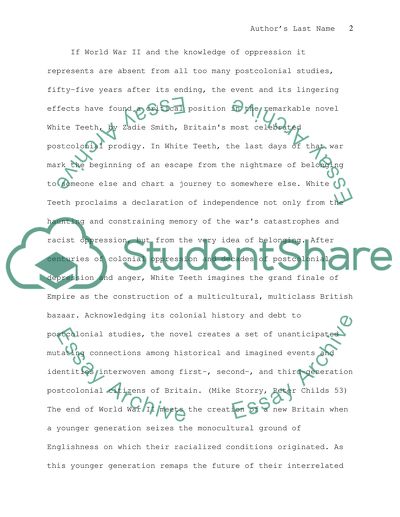Cite this document
(“Literary Analysis Of White Teeth By Zadie Smith Essay”, n.d.)
Retrieved from https://studentshare.org/miscellaneous/1506828-white-teeth
Retrieved from https://studentshare.org/miscellaneous/1506828-white-teeth
(Literary Analysis Of White Teeth By Zadie Smith Essay)
https://studentshare.org/miscellaneous/1506828-white-teeth.
https://studentshare.org/miscellaneous/1506828-white-teeth.
“Literary Analysis Of White Teeth By Zadie Smith Essay”, n.d. https://studentshare.org/miscellaneous/1506828-white-teeth.


